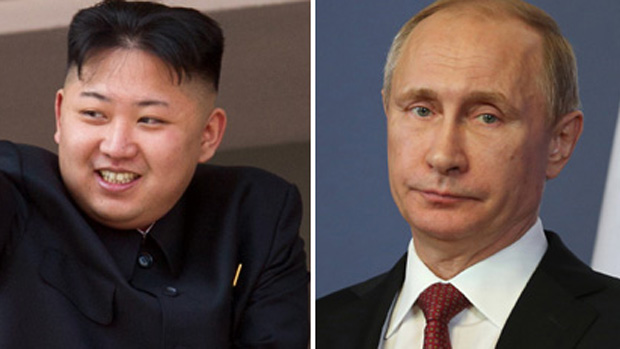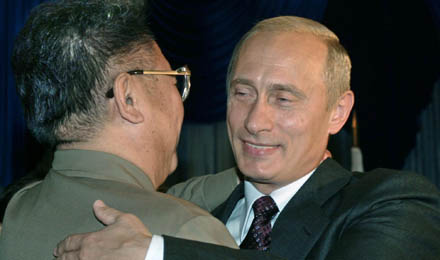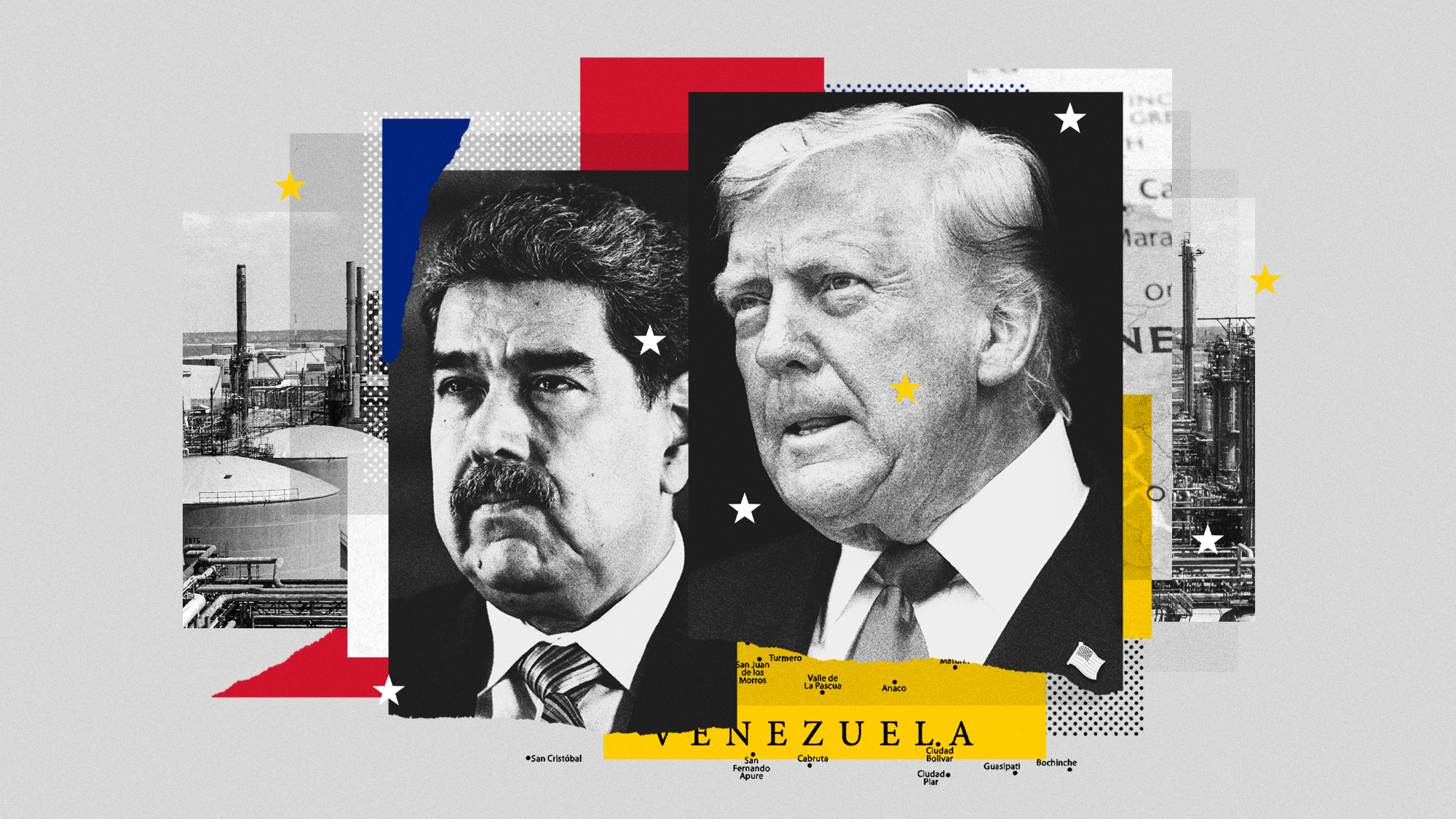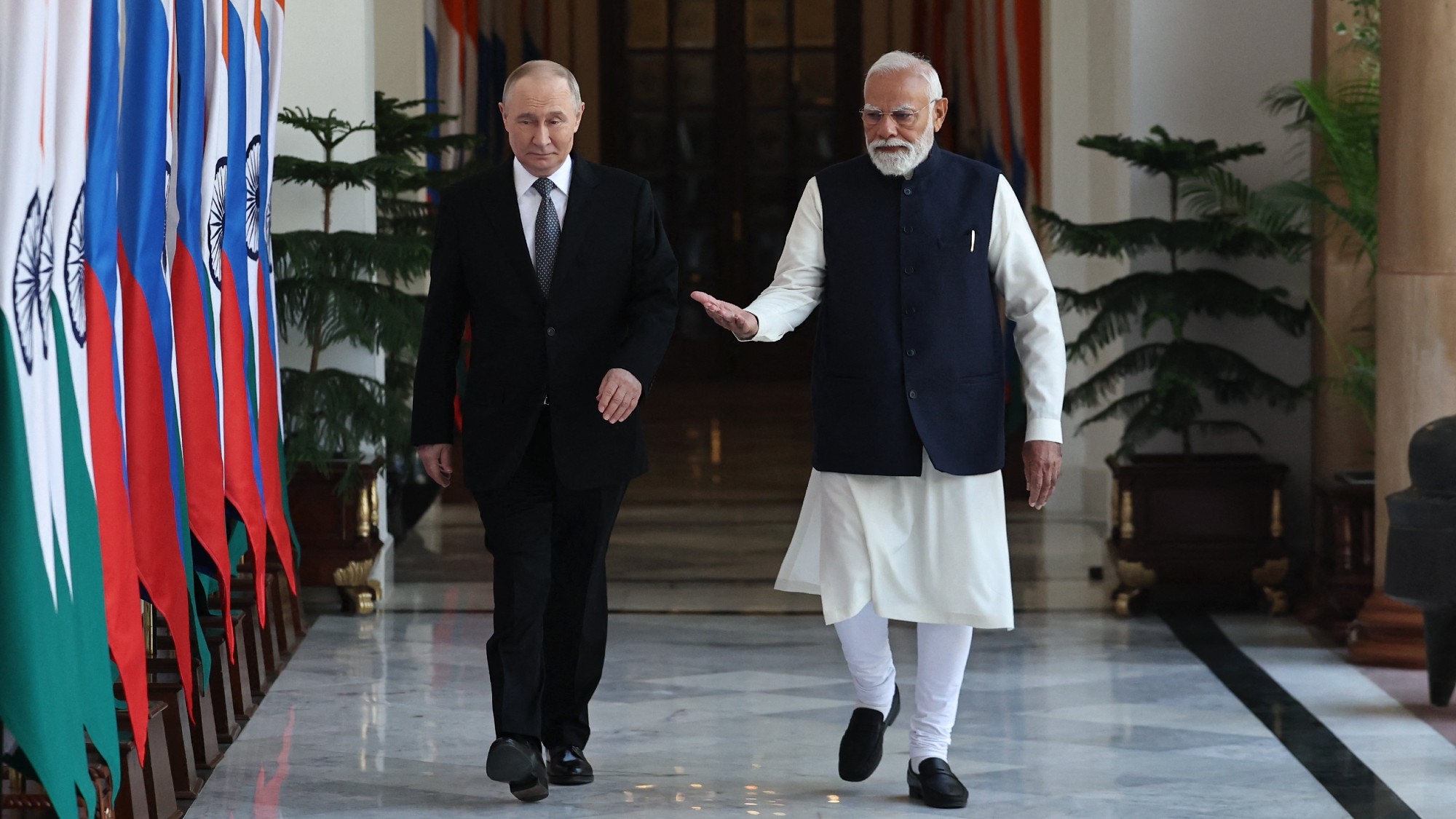North Korea and Russia's 'year of friendship': what does it mean?
Kim Jong-un and Vladimir Putin forge a 'pariah alliance' to 'poke a finger' at America and the West

A free daily email with the biggest news stories of the day – and the best features from TheWeek.com
You are now subscribed
Your newsletter sign-up was successful
The leaders of Russia and North Korea have announced a strengthening of economic and political ties, declaring 2015 "a year of friendship".
With both nations the targets of international condemnation, and Kim Jong-un scheduled to make a landmark visit to Russia soon, what does this deal mean for the west?
Why have they made an agreement?
The Week
Escape your echo chamber. Get the facts behind the news, plus analysis from multiple perspectives.

Sign up for The Week's Free Newsletters
From our morning news briefing to a weekly Good News Newsletter, get the best of The Week delivered directly to your inbox.
From our morning news briefing to a weekly Good News Newsletter, get the best of The Week delivered directly to your inbox.
The deal was made to commemorate the 70th anniversary of "Korea's liberation and the victory in the great Patriotic War in Russia" – references to the defeat of the Japanese and Nazi armies in 1945, according to The Guardian.
This "pariah alliance" comes at a time when both countries face international criticism and isolation from the West over their human rights record. Vladimir Putin has turned eastward as a result of crippling sanctions imposed by the West over the Kremlin's role in Ukraine, while Kim-Jong-un has been forced to find a new ally after his relations with China thawed recently.
Is this a new friendship?
No. As Doug Bandow points out in the National Interest, "the Democratic People's Republic of Korea exists only because of Russia's predecessor state". The links date back to the Soviet occupation of the North during the Second World War and Stalin's backing of Kim Il-sung's plans to invade the South in 1950. The "long-standing tradition of friendship and cooperation" has continued, with Putin and Kim's son Kim Jong-ill meeting on several occasions.
A free daily email with the biggest news stories of the day – and the best features from TheWeek.com

What will the deal mean for both countries?
The deal will "develop the bilateral relations on to a new higher stage in various fields, including politics, economy and culture under a mutual agreement", according to North Korean state media.
It involves a significant amount of investment, with Russia confirming that it will cancel $10billion of North Korea's $11billion debt, and reinvest the rest in the country. Moscow is also offering to spend $25bn on North Korea's dilapidated rail network in return for access to the country's substantial mineral resources.
A series of joint military exercises involving the two nations have also been scheduled, and Kim Jong-un is "keen to get his hands on advanced military technology," reports the Daily Telegraph. Moscow also "conveniently" holds a veto in the UN Security Council which it could use to protect its new ally, the newspaper notes.
And for the West?
Russia, in its isolated state, is "clearly using North Korea as one way of poking its finger at the US," international policy expert L. Gordon Flake told Bloomberg. This latest development is likely to "further complicate the west's attempts to deal with an increasingly belligerent Vladimir Putin and Kim Jong-un's recalcitrant regime in Pyongyang," predicts The Guardian's Justin McCurry.
-
 A dreamy long weekend on the Amalfi Coast
A dreamy long weekend on the Amalfi CoastThe Week Recommends History, pasta, scenic views – this sun-drenched stretch of Italy’s southern coast has it all
-
 Can foster care overhaul stop ‘exodus’ of carers?
Can foster care overhaul stop ‘exodus’ of carers?Today’s Big Question Government announces plans to modernise ‘broken’ system and recruit more carers, but fostering remains unevenly paid and highly stressful
-
 6 exquisite homes with vast acreage
6 exquisite homes with vast acreageFeature Featuring an off-the-grid contemporary home in New Mexico and lakefront farmhouse in Massachusetts
-
 How corrupt is the UK?
How corrupt is the UK?The Explainer Decline in standards ‘risks becoming a defining feature of our political culture’ as Britain falls to lowest ever score on global index
-
 Trump’s ‘Board of Peace’ comes into confounding focus
Trump’s ‘Board of Peace’ comes into confounding focusIn the Spotlight What began as a plan to redevelop the Gaza Strip is quickly emerging as a new lever of global power for a president intent on upending the standing world order
-
 The high street: Britain’s next political battleground?
The high street: Britain’s next political battleground?In the Spotlight Mass closure of shops and influx of organised crime are fuelling voter anger, and offer an opening for Reform UK
-
 Trump considers giving Ukraine a security guarantee
Trump considers giving Ukraine a security guaranteeTalking Points Zelenskyy says it is a requirement for peace. Will Putin go along?
-
 What have Trump’s Mar-a-Lago summits achieved?
What have Trump’s Mar-a-Lago summits achieved?Today’s big question Zelenskyy and Netanyahu meet the president in his Palm Beach ‘Winter White House’
-
 Why, really, is Trump going after Venezuela?
Why, really, is Trump going after Venezuela?Talking Points It might be oil, rare minerals or Putin
-
 Moscow cheers Trump’s new ‘America First’ strategy
Moscow cheers Trump’s new ‘America First’ strategyspeed read The president’s national security strategy seeks ‘strategic stability’ with Russia
-
 Is a Putin-Modi love-in a worry for the West?
Is a Putin-Modi love-in a worry for the West?Today’s Big Question The Indian leader is walking a ‘tightrope’ between Russia and the United States